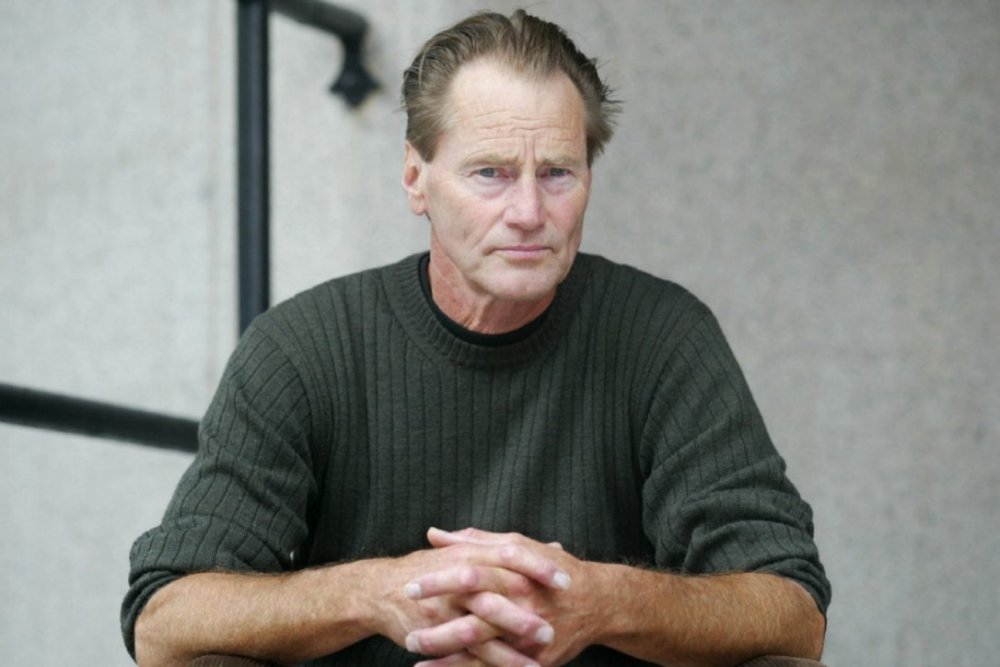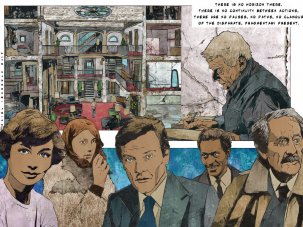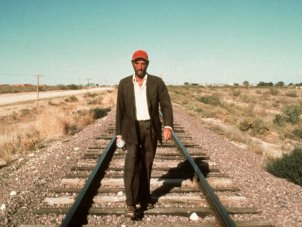If Sam Shepard Rogers (‘Steve’ to his folks) wasn’t strictly a cowboy, he could at least shear a sheep and clean out a stable. He grew up in Duarte, 20 miles east of Hollywood, and enrolled in college to study agriculture, but before he was 20 he had hightailed it to his second home, Off-Off Broadway. Sam Rogers, his father, was a bomber pilot, a teacher, a drummer, a farmer, a lost soul, an abusive drunk and the ghost who haunts so much of his son’s best writing.
It was 1962 and Shepard plunged into the experimental theatre scene, carving out a new name for himself as a bold and brilliant young playwright. He wrote quickly, freely, channeling voices like music: identity is fluid, character fractured and fragmented. Shepard would call these early works ‘incantations’. Written between 1976 and 1984, his mature and most acclaimed plays, Buried Child, True West and A Lie of the Mind, are honky-tonk exorcisms of errant fathers, broken families, wounded, wounding men.
Paris, Texas, Wim Wenders’ 1984 film, is of a piece with this work, and of equal stature. It’s Shepard’s most significant accomplishment as a screenwriter, a sideline that also included collaborations with Antonioni on Zabriskie Point, Robert Frank, Bob Dylan (Renaldo and Clara), Robert Altman (Fool for Love) and his self-directed, unconvincing Far North and Silent Tongue. There was also Don’t Come Knocking, a self-conscious, semi-successful reunion with Wenders in 2005, in which he starred as a Hollywood cowboy.
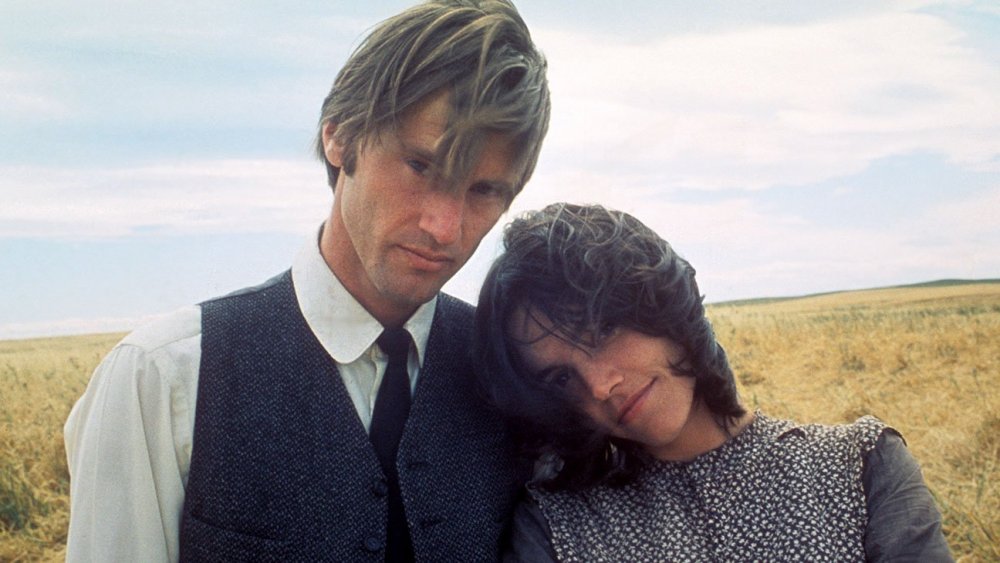
With Brooke Adams in Days of Heaven (1978)
“A man playing cowboys” was how Patti Smith described Shepard as early as 1971. The image fit like a Stetson: lean, tall and handsome with piercing blue eyes, he spoke low and slow without giving much away, just a certain dry detachment.
Two early acting roles stand out, both for the calibre of the movies and his own indelible contributions to them: the farmer (unnamed) who’s played for a fool in Terrence Malick’s Days of Heaven (1978), and Chuck Yeager, the test pilot who broke the sound barrier in Philip Kaufman’s The Right Stuff (1984). Both parts are laconic to say the least, peripheral to the drama and yet cutting to their spiritual core. It’s no exaggeration to say that in The Right Stuff Shepard’s Yeager is iconic, the epitome of an old-timey ideal of existential courage.
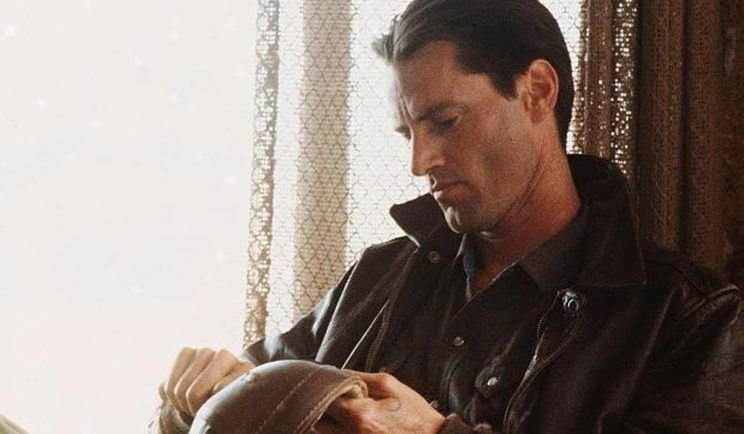
As Chuck Yeager in The Right Stuff (1983)
Villainy and decency were both in his wheelhouse, but there wasn’t vast range and he didn’t pursue stardom, keeping all that at arm’s length. (In the fragment Falling Without End, Shepard itemises several explanations, including his refusal to do junkets, his bad teeth, his aversion to LA and – shades of Travis – his mortal fear of flying.) Hollywood pegged him as a character actor in westerns and neo-western crime dramas, and that was just fine – but deeply ironic that he was typed as the embodiment of everything he struggled with in his writing, that legacy of machismo the movies laid down for American males.
When Wenders tried to persuade him to take the lead in Paris, Texas Shepard suggested his friend Harry Dean Stanton, an act of generosity and self-protection, but also a shrewd choice that recognises how his own guarded, cerebral instincts were wrong for the role. It’s worth noting, too, that generations of American actors found a voice performing Shepard’s 50-plus plays: John Malkovich, Gary Sinise, Philip Seymour Hoffman, Ed Harris, John C. Reilly, Sam Rockwell, Ethan Hawke among them. It’s a voice that will continue to reverberate across the hinterlands. Sam Shepard was 73.
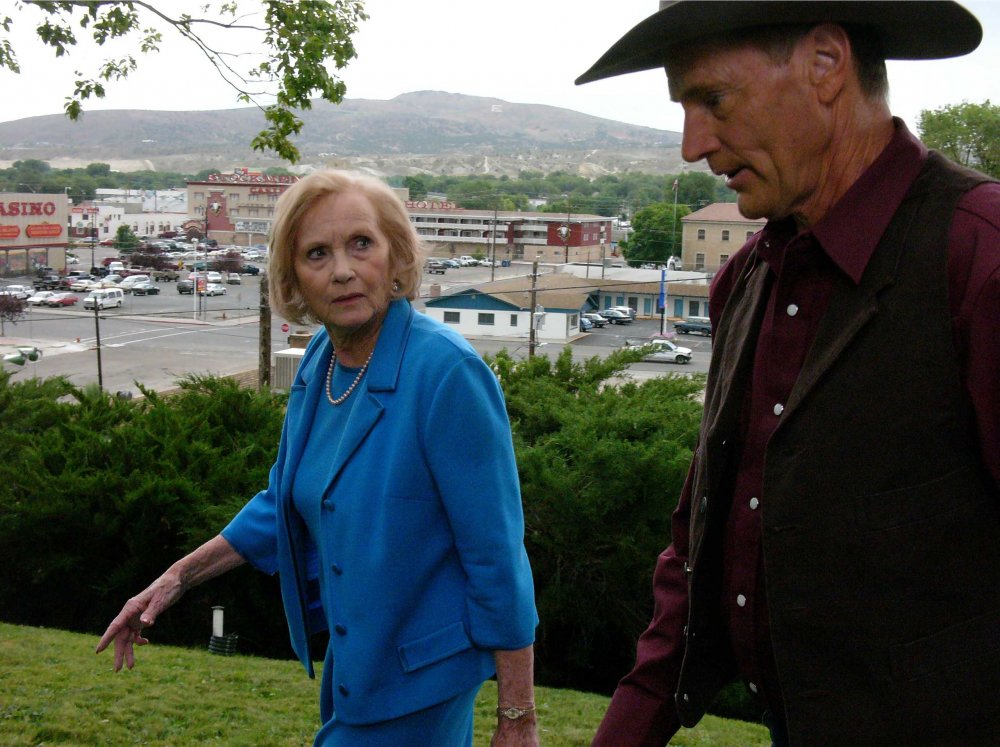
With Eva Marie Saint in Don’t Come Knocking (2006)
-
The Digital Edition and Archive quick link
Log in here to your digital edition and archive subscription, take a look at the packages on offer and buy a subscription.




